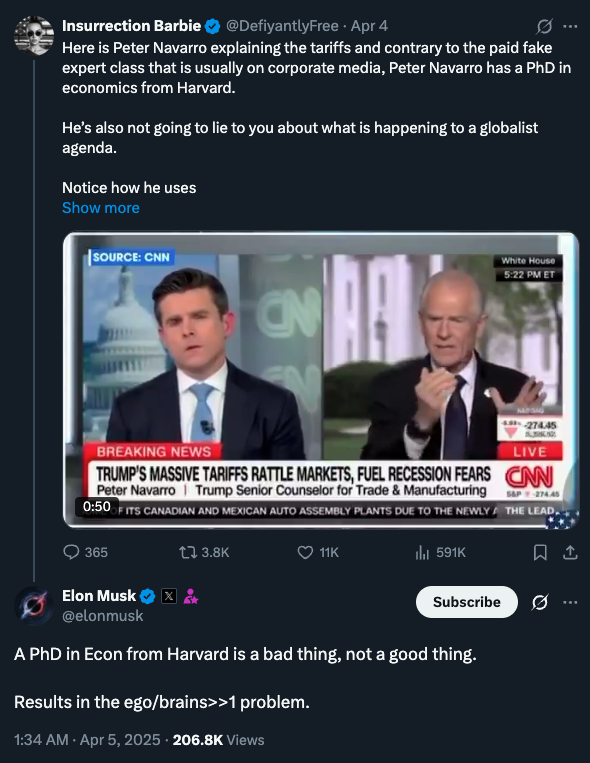Elon Musk recently stirred the pot with a subtle yet significant comment regarding U.S. trade policies. In a reply post on social media, Musk seemed to take a slight jab at Peter Navarro, the former White House trade advisor known for his hardline stance on tariffs, particularly against China. Musk, who has frequently expressed concern about tariffs’ impact on the economy, subtly disagreed with Navarro’s positions in a brief but pointed exchange.
In his response, Musk suggested that Navarro’s approach was perhaps not the most beneficial for businesses, hinting that such policies could have negative consequences on innovation and market dynamics. Musk has long been critical of tariffs, arguing that they lead to higher costs for consumers and disrupt global supply chains, particularly for companies like Tesla that rely on international manufacturing.
This exchange signals a rare moment of public dissent from Musk, a figure known for his controversial and often unfiltered statements. While Musk typically stays out of direct political conflicts, this response hints at his growing frustration with policies he perceives as counterproductive to economic progress, particularly in the tech sector.
Though Musk didn’t explicitly call out Navarro by name, the tone and context of the post were clear enough to draw attention, sparking further discussions about the intersection of politics, business, and international trade. Musk’s willingness to engage in this type of discourse also reflects a broader trend of influential tech figures speaking out more openly on policy matters, a shift that could lead to more public debates within the business and political realms.

Be the first to comment